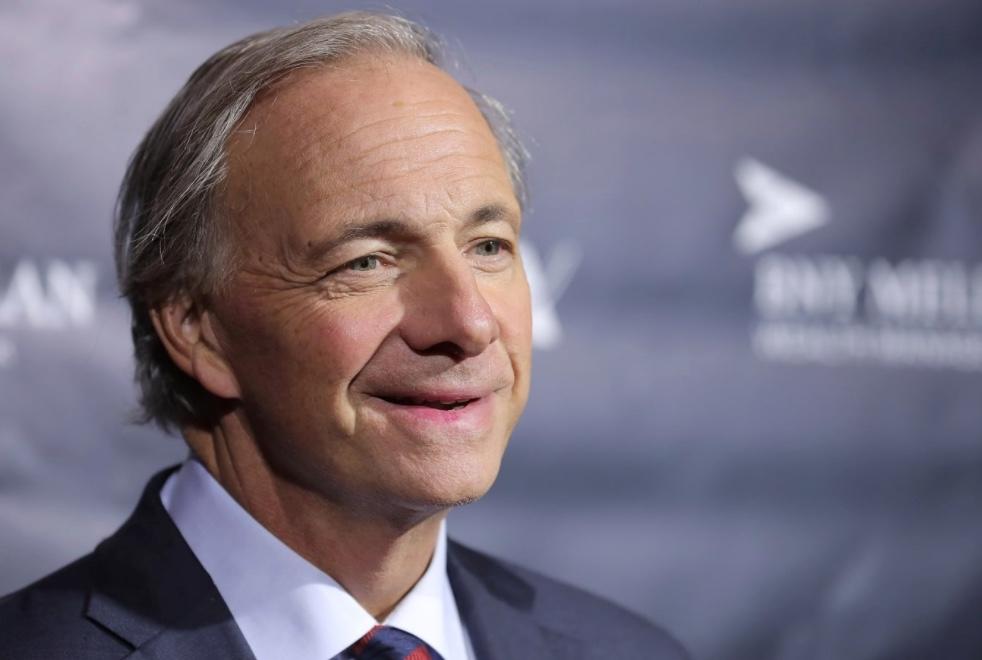Lawsuit Accuses Ray Dalio Of “Devaluing Women”, “Abuses Of Wealth And Power”
Tyler Durden
Thu, 09/24/2020 – 18:20
Judging from the scathing allegations made in a recent lawsuit reported by Fox Business, Bridgewater founder Ray Dalio applies the same domineering attitude to his charitable endeavors for which he has become known as the world’s largest hedge fund, which he still controls after several attempts at “letting go” didn’t quite work out.
Last year, Dalio made headlines (and history, he alleged) by pledging to donate $100 million to the state of Connecticut – a conditional gift intended to help improve schools in some of Connecticut’s most desolate cities. Dalio’s money was part of a deal whereby the state of Connecticut would kick in $100 million of public money, while Dalio helps raise another $100 million in private funding. So far, the initiaive appears to have stalled. Dalio’s family foundation and the state established a public-private partnership known as the Partnership for Connecticut.
more on this now @FoxBusiness @TeamCavuto https://t.co/MrhXM82vNw
— Charles Gasparino (@CGasparino) September 24, 2020
Unfortunately, the organization was disbanded back in May amid acrimonious accusations of mismanagement. Now, the organizations’ former CEO, Mary Anne Schmitt-Carey, is suing the Dalios for $2.5 million. She’s alleging wrongful termination and reputational damage. The foundation disbanded after it was exposed for spending only a tiny amount of its dedicated funds on children. Though the Dalios say they’re still willing to hand over the full $100 million, it looks like the initiative is dead in the water, and Dalio’s “historic” gift will never actually come to pass.
We could go on about the hypocrisy at work here, but we digress. The allegations details in Schmitt-Carey’s lawsuit are damning enough. In the lawsuit, the former CEO accuses the Dalio’s of trying to push her out just 2 months after she arrived in the position, and that they tried to “scapegoat” her for failings that were entirely engineered by the Dalio family and others at the organization.
Schmitt-Carey says in her lawsuit that she was made a scapegoat for the partnership’s troubles that eventually led to its demise. She began her role as CEO on March 23, but on May 4, she received a call from several board members, including Mr. Dalio’s wife, Barbara, who is also the director of Dalio Philanthropies, ordering her to resign, according to the lawsuit.
Schmitt-Carey has three decades of experience in nonprofit work and she attempted to utilize her experience when she was appointed to run the partnership, the lawsuit says.
But “Mr. Dalio went on to instruct Ms. Schmitt-Carey that her job was not to draw on the experience and knowledge she had accumulated during her long career but to take direction from Ms. Dalio regarding which programs should be implemented. As stated above, Mr. Dalio informed Ms. Schmitt-Carey, ‘If my wife wants to distribute 10,000 coats, your job is to figure out how to do that.”
The lawsuit adds that “Mr. Dalio’s dismissive directives to an accomplished executive woman fit a longstanding pattern of devaluing women: Mr. Dalio’s hedge fund, Bridgewater Associates LP, has been publicly accused twice in the past two months of paying women executives less than men with equal or lesser responsibilities.”
In May, Schmitt-Carey says she was informed by Dalio Philanthropies that she was ineffective at her job and was asked to resign, the lawsuit states. She denied the allegations that she was responsible for the mismanagement and refused to step down, the suit says.
She also alleged that Dalio set up the partnership to deliberately bypass state ethics requirements, allowing him to try and exercise unilateral control.
She accuses the defendants of “wrongful acts involve abuses of wealth and power, misuse of a not-for-profit public-private partnership for private purposes, a chronic lack of transparency, a disregard for the reputations of others, and clear breaches of contractual duties.”
The lawsuit also states that Dalio conditioned his $100 million donation on the basis that it be exempt from state ethics and disclosure rules.
“This exemption risked allowing an entity created by state legislation, with one-third of its budget coming from public funds, and with a board of directors including five elected officials, to operate in large part behind closed doors,” the lawsuit states.
Instead of providing a framework for a new society where the rich pitch in to repair our schools and social safety net while restoring good governance, Dalio’s “donation” will contribute to the impression of hopelessness that many of these young students feel, as promised help never seems to arrive.
